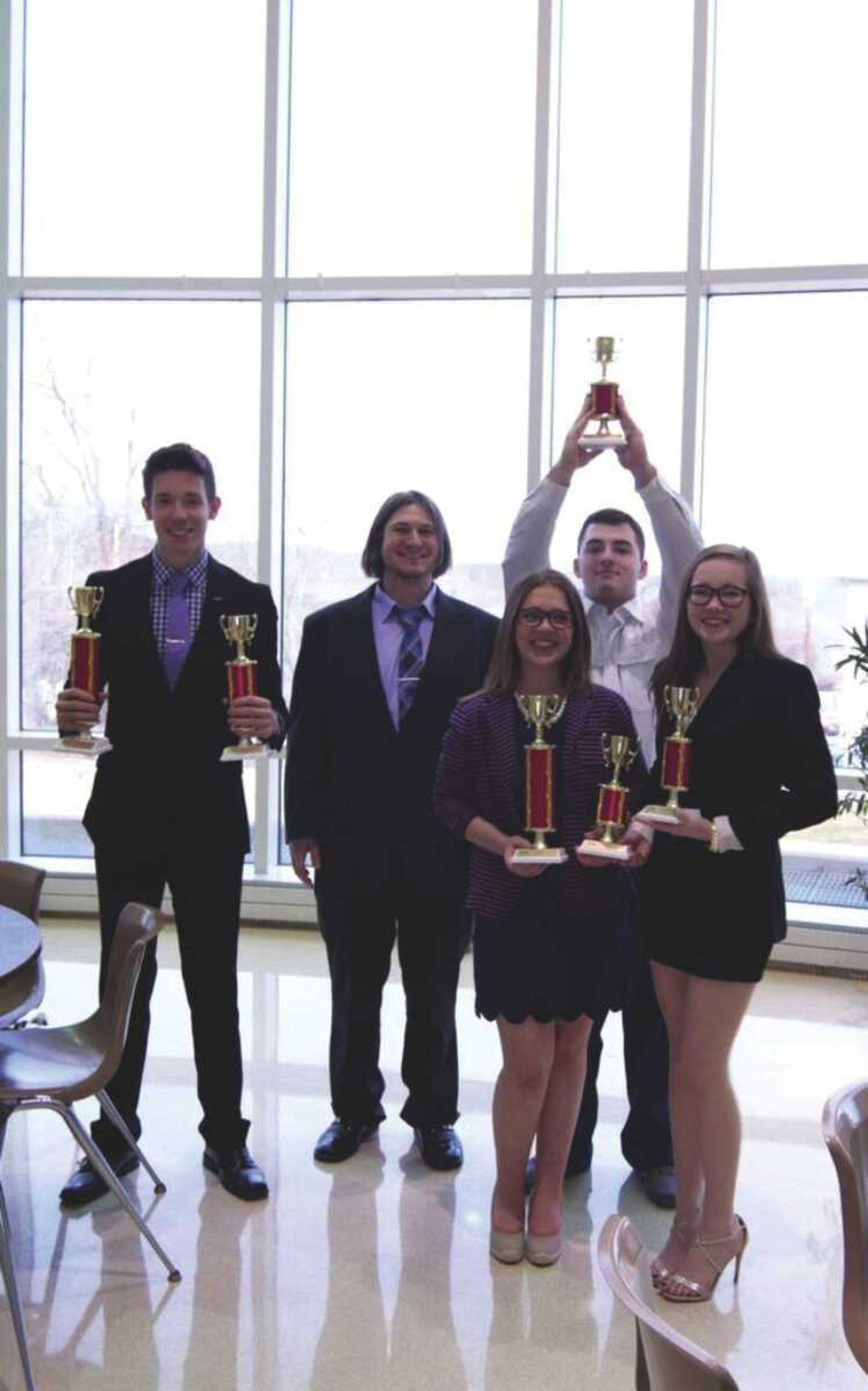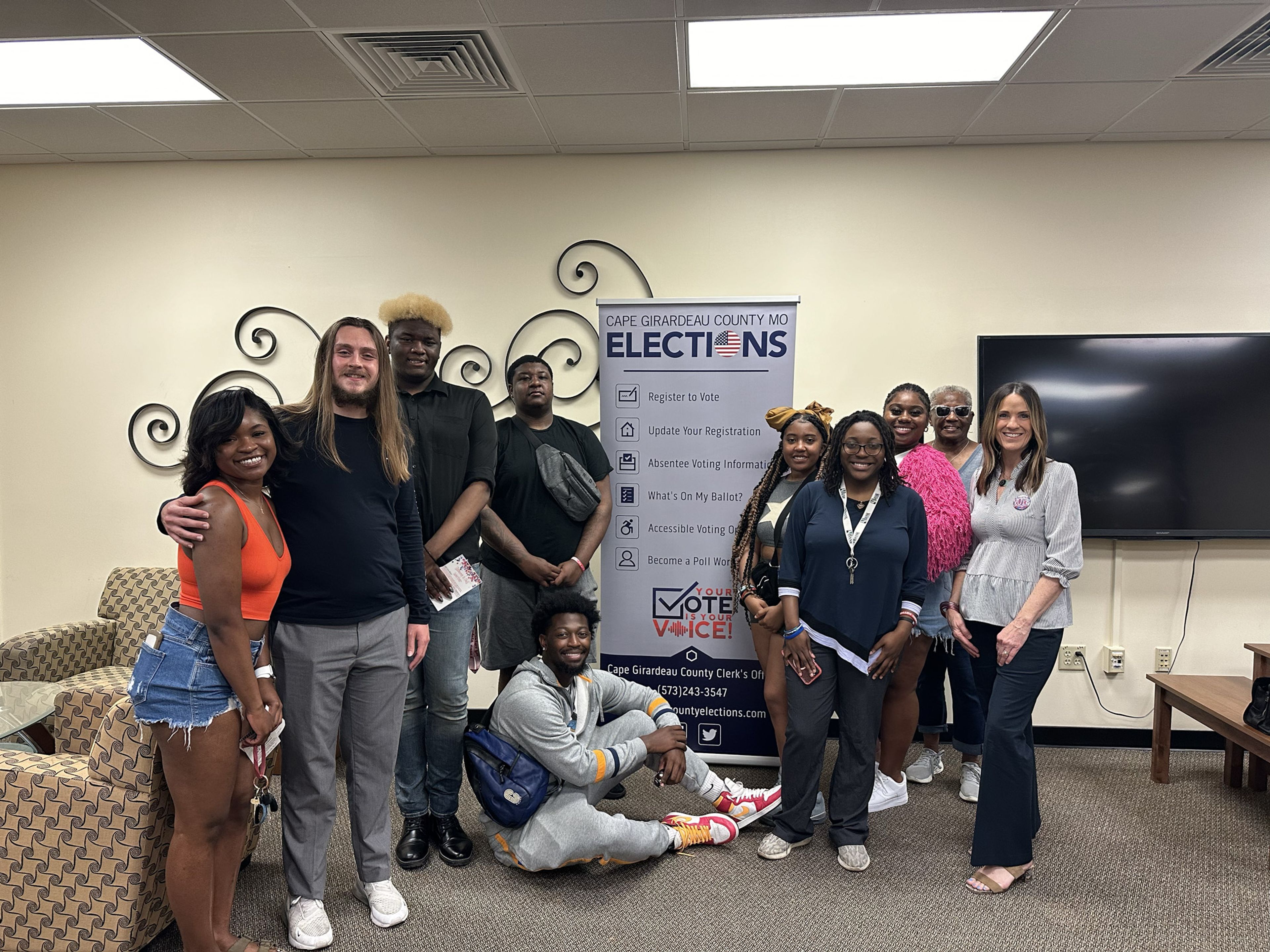Oftentimes, when people think of the word "debate," the thought of friends or family having heated conversations at the dinner table comes to mind, or maybe even thoughts of presidential candidates arguing over policy change. In either situation, effective communication and speech are essential to the process of debating. And what is even more essential in becoming a good debater is having a good coach.
Dr. Avery Henry, assistant professor of communication studies at Southeast Missouri State University, started teaching in the fall of 2015. Along with his status as an assistant professor, Henry also became the new coach for the Southeast Debate Team after longtime coach Dr. Larry Underberg decided not to return.
Before becoming an educator and debate coach, Henry was involved in the debate team when he was a student in college.
"I debated for the majority of my college career," Henry said. "It wasn't until I got into my master's program that I switched to communication, but it was so I could coach debate. In a lot of ways debate is what brought me into communication."
Henry said one of the reasons he wanted to be a debate coach was because of the effect it had on him when he was younger.
"Debate was so important to me when I was younger," Henry said. "It provided me a whole different perspective on the world and taught me to engage others and to speak with conviction. I wanted to help others find that same kind of path."
Although this is Henry's first year as the debate coach at Southeast, he has coached at other colleges in the past, including the University of Louisiana at Lafayette and Wayne State University. Henry said coaching debate at Southeast is different for him because it is his first time coaching in the National Educational Debaters Association format.
"It's a very different style in terms of how these debates operate," Henry said. "This debate is centered on a public audience -- anyone who is willing to watch the debate is qualified to judge."
Henry said winning competitions is always a goal, but winning is not the only thing he wants his students to take away from being involved in debate.
"Otherwise, there's general goals that you want to see from your students -- some want to go to law school, some want to go to graduate school, so to help them form those connections ... that's always a major goal to it," Henry said.
Collin Ritter, a Southeast Debate Team member, said Henry makes being a part of the debate team a fun experience.
"He's super goofy but incredibly intelligent," Ritter said. "He's super helpful, and he's a lot of fun, so that makes the whole experience better when your coach is really fun to be around."
Ritter said Henry's track record for debating makes it clear why he coaches debate.
"He's a very accomplished debater, that's one thing he doesn't talk about a lot," Ritter said. "He traveled the entire country and debated, so it makes sense why he's a coach."
According to Ritter, Henry has a down-to-earth personality and makes it easy for his students to get in touch with him when they need to.
"Seeing as that we travel with him, I feel like he wants us to have that sort of connection where we can feel free to get ahold of him quickly if we need to," Ritter said. "He has insight for just about any debate issue you have."
Henry said the dedication of the students on the debate team makes it easy for him to do his job and have positive relationships with them.
"It's been good, the students are very hardworking," Henry said. "It's a very good group of students that are eager to learn, and they work very hard. It's an easy kind of relationship with them, when you have students that are active and very engaged."





